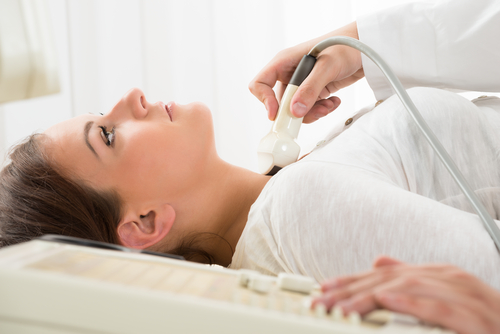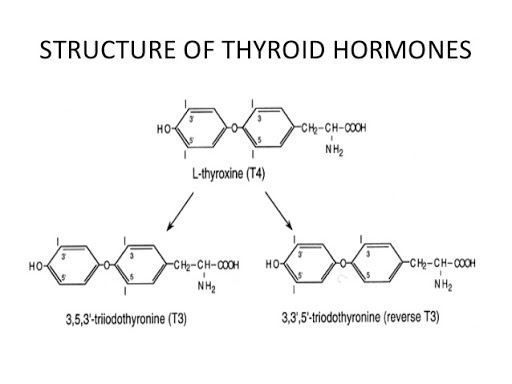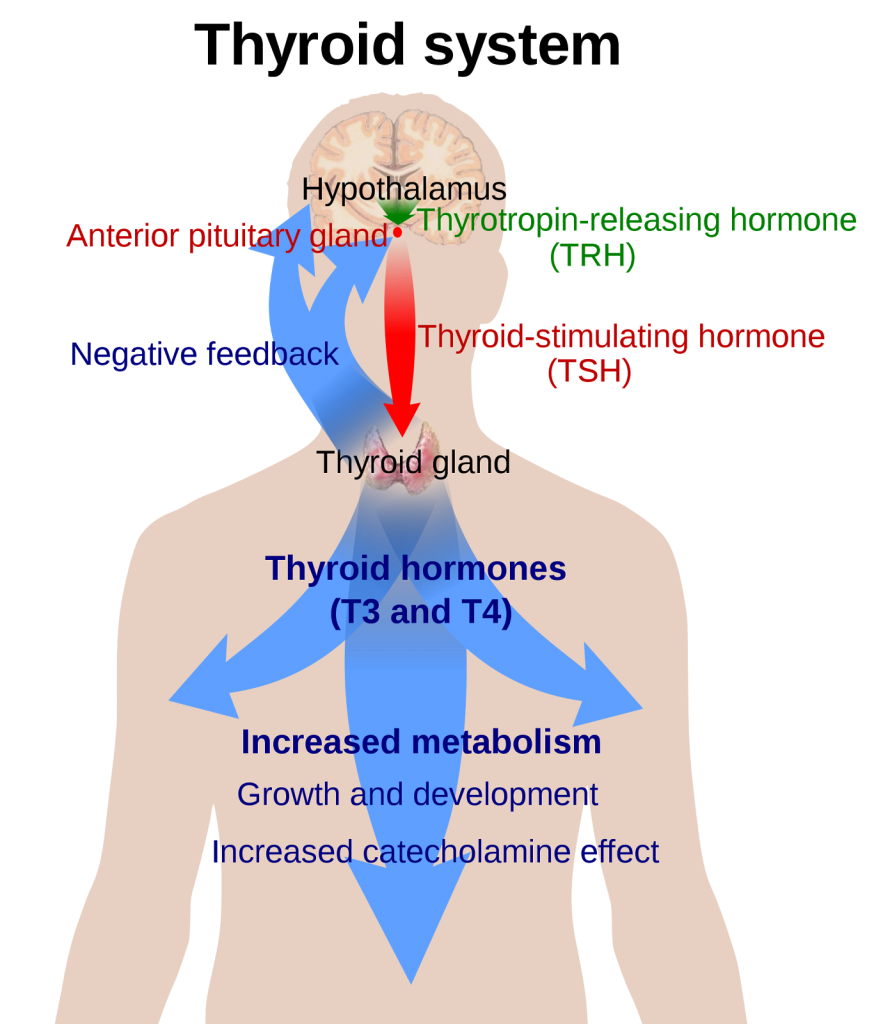One of the questions that I get the most is, “is natural thyroid safe?” First, you might be wondering exactly what is NDT thyroid and how long does it take for desiccated thyroid to work?
Today, I want to talk to you about some of the biggest myths surrounding this form of treatment. Have you heard that you cannot take it if you have Hashimoto’s? Well, this article is for you! Please enjoy this article while I discuss these controversies, and much more, today.
Let’s Talk About NDT
First, we should take a moment and explain what NDT is all about (if you’re curious about an article I did about myths before, click here to read it). I want to really break it down, so let’s go word-by-word so that you can have a clear and total understanding of what forms NDT and to create it:
- Natural – means that it is from a natural source. In prescription medications, that will typically come from pig thyroid (also known as porcine thyroid).
- Desiccated – this means dried out.
- Thyroid – it’s thyroid hormone!
One of the things I want to start off with is that sometimes people think of NDT as Armour. While Armour is the brand name, NDT is the compound. It’s kind of like how Kleenex makes facial tissues, but there are plenty of facial tissue companies out there.
Kleenex is not the only one making it, and when it comes to NDT Armour is not the only option. Personally, I prefer WP Thyroid as best natural desiccated thyroid for treatment.
Now that we have a solid understanding of what goes into NDT! Let’s introduce you to the 10 biggest myths about NDT and what they mean for your health:
Myth #1: It’s not okay for those with Hashimoto’s disease

The argument goes something like this: somehow, ingesting thyroid will raise your thyroid antibodies against your “original” thyroid.
That would obviously not be ideal for those who are dealing with Hashimoto’s. In fact, I have actually heard doctors tell people that they cannot take NDT at all and that it can even worsen your immune state.
I do not want to jump to conclusions about what is true and what is a myth without unpacking the myth itself because then we can approach it logically.
Let’s think about it: people who take thyroid do so because they have hypothyroidism (where their gland simply is not making enough hormone for their body). Those who have hypothyroidism, almost universally, have Hashimoto’s disease (learn more about supplements for Hashimoto’s by clicking this link).
Bottom Line: If those with Hashimoto’s could not take NDT, then who would? They are the only real group who NDT would be meant to help.
NDT and Antibodies
I want to start by tracking back to the argument about taking natural thyroid and raising your antibodies against your thyroid. There have been a couple of studies done on exactly this topic.
Those I found showed that orally taking natural thyroid lowers your body’s immune response against your thyroid. This is the model of “oral desensitization.”
Key Insight: This is based on the idea that when you take something in your body, in a tiny amount, on a regular basis, your immune system becomes more tolerant of that substance.
Clinically, I have case studies to where patients have had high thyroid antibodies and erratic thyroid levels that came from that.
Oftentimes, the one change we would make was switching to NDT as a form of treatment.
This would ultimately result in the antibodies coming down, and the levels stabilizing.
Bottom line: I have seen countless cases where thyroid antibody levels have come down from the thousands to zero, simply by switching to NDT for 6 – 8 weeks. Having said that, it might not work for everybody when it comes to lowering them completely, but it certainly does not raise them any higher.
Myth #2: It’s a poor choice because it is not standardized
This argument is all about creating a consistent product.
It is based on the idea that synthetic thyroid (or Synthroid), because it is synthesized, it is more predictable how much T4 (or T3) you are getting.
Remember how I mentioned before that NDT comes in certain brands? In the past, there were actually more brands of NDT then we have today.


It was also more widely used in the past. The turning point actually occurred in the late 1970s and early ’80s.
Prior to that point, there were more doctors prescribing NDT than those prescribing Synthroid.
The means of standardizing hormone used to be based on iodine content. Back in the day, that was more difficult to do using NDT than Synthroid – because you could guarantee how much active hormone would be present.
Unfortunately, this led to some sad cases of people not getting the amount of active hormone that they needed. Ultimately, this led to a change in the guidelines for how hormone treatments would be standardized.
Key Insight: You know it, and I know it, a lot of things have changed since the ’70s and NDT is no different! If we look today, science has come far enough that we can ensure that we get the right amount of active hormone from NDT that we need for effective treatment.
Synthetic Versions
Now, let’s look at it from the other side, there have been multiple recalls for synthetic versions of thyroid over the years – upwards of a dozen in the last decade.
This is chalked up typically to poor quality control, and not being as consistently manufactured to a high degree of quality.
In the last decade and a half, there has been one voluntary recall of NDT. So, NDT has actually had a better track record of helping patients over a longer period of time than Synthroid.
In terms of numbers:
- Synthroid – standardized to within 5% of prescribed recommended dosage.
- NDT – there are brands which are standardized to less than 2% variability.
Bottom Line: NDT brands like WP Thyroid, Westhroid and Nature Throid all have better standards than Synthroid alternatives. While they might not be standardized the same way, that’s a good thing, because they are standardized amongst themselves even better.
Myth #3: You have to take it multiple times per day to have it work

This is one that I hear all of the time. When it comes to prescribing medications, there are some terms that we hear a lot in the medical community (Read: The complete thyroid medication guide).
In order to help your understanding, they are:
- QD – once daily
- BID – twice daily
- TID – three times daily
Many say that you must take thyroid BID or longer, or more frequently, to have it work properly. The logic behind this idea comes down to T3 absorption in our bodies. So T3, which is found in natural thyroid, is absorbed and peaks in a 4 – 8-hour window after you take it.
Doctors have looked at that and suggested that you need to take it a couple of times a day, or else that T3 absorption will drop off after that time period. This is where the problem starts.
Key Insight: We need to understand the key difference between “absorption” and “metabolism” – how quickly it comes in, and how quickly it goes out. How frequently you take medication should not be based on the former, it should be based on how long it takes to actually leave your body.
The Truth About NDT
The excretion of T3 from your system is actually 1 – 3 days, as opposed to that 4 – 8-hour window that we mentioned previously. Because of that, you can take it once a day and have consistent amounts in the cells.
Bottom Line: In fact, it is better to take T3 once daily because thyroid hormones abide by a circadian rhythm. Your body releases the bulk of them during the late evening/early morning. So taking NDT before bed or early in the morning actually achieves what would be happening if your thyroid was operating normally.
Twice daily ingestion is not good for your circadian rhythm. This is because it is an unnatural process that your body would not abide by if it was working at 100% health.
It is also unhealthy because it ignores your body’s excretion levels, instead of providing too much all at once.
Myth #4: It affects your ratios of natural thyroid (T3/T4) impossible

Here’s the thought on this one: the T3/T4 ratios, once you are on a good dose, are more about your:
- Liver
- Kidneys
- Intestinal Tract
- Detox Pathways
They are more about these things than they are about the dosage you are taking. But, more often than not, that someone is not on a good dose. That itself will skew those ratios, no matter what they are when you are taking it.
What I mean by this is that if you are taking too much thyroid hormone, you will get rid of T3 faster than you would get rid of T4.
If you are on too little thyroid hormone, you will hold onto T3 longer than you would hold onto T4.
Bottom Line: The issues about ratios are more about dosage than the medicine being somehow wrong for us. Once the dosage is right, though, and those ratios are not perfect it would have more to do with peripheral thyroid metabolism.
The Ratios Found in NDT
In terms of how the ratios are found in NDT, compared to the body, many have said that it is a 4:1 ratio and that humans need a 10:1 ratio. The real question is, “what are we talking about when it comes to this ratio?” Do we mean what is in the:
- Thyroid?
- Blood?
- Cells?
Getting to the bottom and answering the “where” component of the question is going to be so important, especially as it concerns proper ratios.
Our thyroid itself is actually at the same ratio as NDT, and when we first take NDT, the bulk of it gets bound up in carrier proteins in our body anyways. So, our body has the ability to unbind and “convert” as we see fit.
If we are on the right dosage, and our body is working well, then we can actually use NDT properly. The question then becomes: “how much desiccated thyroid should I take?”
The Role of Testing
Testing is incredibly important. If you want to learn more about interpreting your thyroid labs, a great place to start is with an article I wrote (you can find it by clicking here).
If someone is on NDT, and a doctor runs a test like:
- TSH
- Free T3
- Free T4
In this case, the doctor might notice that T3 is too high. This will then lead them to believe that you need less, because of the fact that your ratio is too high.
The real problem here actually is not the ratio, but the timing of the testing itself. (learn more about testing your thyroid by clicking this link).
Key Insight: If you take a blood test right after taking your NDT tablet, your TSH and Free T4 might remain normal, but it can make your Free T3 score look shockingly high. This is only a question of timing, and nothing more!
Myth #5: Your Reverse T3 Levels Will Raise Higher
This goes back to our same, earlier issue about ratios. If you are on too much thyroid, your body will ultimately compensate – this will result in your body converting more T4 into T3 than it otherwise normally would.
Bottom Line: High reverse T3, in nearly all cases, is more of an issue of the wrong dose rather than the wrong medicine. If you get the dose right, reverse T3 is apt to fix itself.
Myth #6: You Need to Take Iodine With It
The fact is that NDT has 0.17 – 0.23% iodine by weight. People who have thyroid disease do best when they have 100 – 300 micrograms of iodine total (and most diets have at least 100 micrograms).
Let’s do the math. 1 grain (60 – 65 mg) of NDT is equivalent to about 130 micrograms of iodine. That brings us to about 230 micrograms of iodine, simply from NDT and our diet alone.
We do not need to take iodine along with NDT, as we get enough from the combination of our diet and NDT itself. If you do take extra iodine, pushing your levels above 300 micrograms can slow the thyroid. This is something you definitely want to avoid.
Myth #7: It’s Not Safe if You Have Thyroid Cancer
The folks who believe NDT is not safe for those with thyroid cancer are making a point about TSH.
The main goal, overall, is to keep TSH on the lower side. That is because a higher TSH can stimulate thyroid cancer cells and cause them to grow.
It’s not true, though, because NDT can suppress your TSH just fine. While some brands of NDT are better standardized than others, well-standardized brands make it easier to keep the TSH in a tight window to benefit your health.
This includes brands like:
- WP Thyroid
- Nature Throid
- Westhroid
Myth #8: It’s Not Safe During Pregnancy
Those who need thyroid replacement can Safely use natural thyroid during pregnancy.
It is important to remember, though, that blood levels fluctuate more during pregnancy and it is important to test more frequently (regardless of which type of medication someone is on).
It is also acceptable to have your TSH scores run slightly lower during pregnancy.
Myth #9: There’s Not Enough Studies
Not true – there have been double-blinded studies comparing the results of natural thyroid against T4-only medications. The results showed that those on natural thyroid lost weight more easily than those on T4 only.1
When asked which pill they liked better, roughly 3 times as many patients preferred natural thyroid, even though they did not know which one was which.
Myth #10: NDT Isn’t Taken By Many People
According to a recent survey of over 12,000 people on treatment for hypothyroidism, 29% were taking natural desiccated thyroid.
If anything this group would be less likely then others to use natural thyroid, specifically because the survey was hosted by the American Thyroid Association (which recommends T4 treatment over natural desiccated thyroid).2

Dispel Myths, Gain Knowledge

Now that we have gone over some of the most common myths about NDT, and worked to a better understanding of how it can benefit our thyroid, why not take the next step and really learn more about your thyroid today?
Take the Thyroid Quiz (Click Here), and learn a little bit more about this important part of your body. Are you concerned about the status of your thyroid?
Get on the road to recovery by learning more about what could be wrong today.
Resources
1 – https://www.ncbi.nlm.nih.gov/pubmed/23539727
2 – https://www.thyroid.org/ata-hypothyroidism-survey-results/

1. Schedule a Thyroid Second Opinion with me, Dr. C, Click Here for Details
2. Download and use my Favorite Recipes Cookbook Here
3. Check out my podcast Medical Myths, Legends, and Fairytales Here
Dr. Alan Glen Christianson (Dr. C) is a Naturopathic Endocrinologist and the author of The NY Times bestselling Adrenal Reset Diet, The Metabolism Reset Diet and The Thyroid Reset Diet.
Dr. C’s gift for figuring out what really works has helped hundreds of thousands of people reverse thyroid disease, lose weight, diabetes, and regain energy. Learn more about the surprising story that started his quest.


